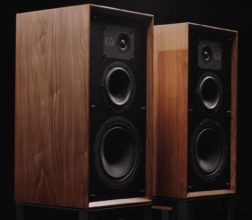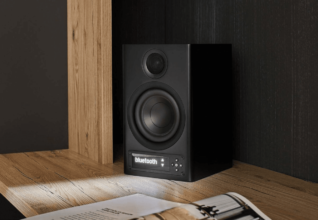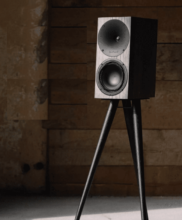Q Acoustics M20 Review
These speakers are small—maybe even tiny. But the M20 from Q Acoustics are active, needing only one power cable to spring to life.
By Andreas Günther
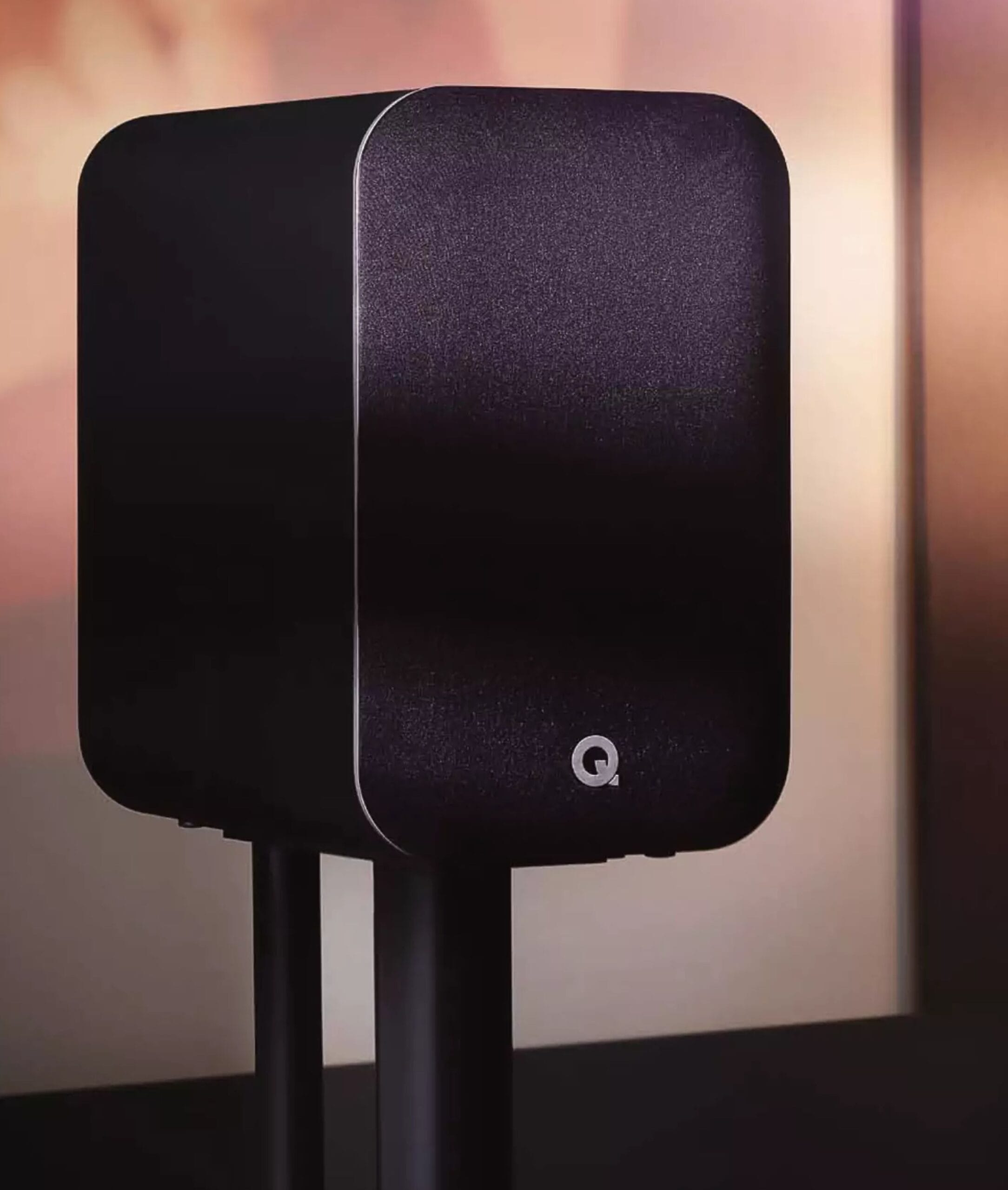
Every soccer club dreams of winning the triple. Q Acoustics, on the other hand, pursues a different type of “triple.” They offer a classic passive pair of speakers, an active version with a hub/streamer in the middle, and then this hybrid variant: the M20 set, which pairs one active speaker with a passive companion. This straightforward yet clever approach works especially well on a desk. Because each speaker stands only 28 centimeters tall, they fit nicely beside a monitor—or even better, under a TV in a living room.
The setup is refreshingly simple. Connect your device with an RCA cable or use USB from your computer to the active speaker—that’s it. Then run a speaker cable from the main speaker to the other one. A toggle switch on the back allows you to choose whether the main (master) speaker is on the left or right. Another toggle switch sets whether the speakers will be placed out in the open or near a corner. That’s really all you need to kick off a lively listening session.
CLEARLY MORE AGILE
I’m familiar with the version that uses an active hub in the middle, which was good, though I wasn’t instantly smitten. This new, edgier, stripped-down approach—free from the in-house control box—sounds better to me. It offers more drive in the lower midrange along with a bright, transparent top end.
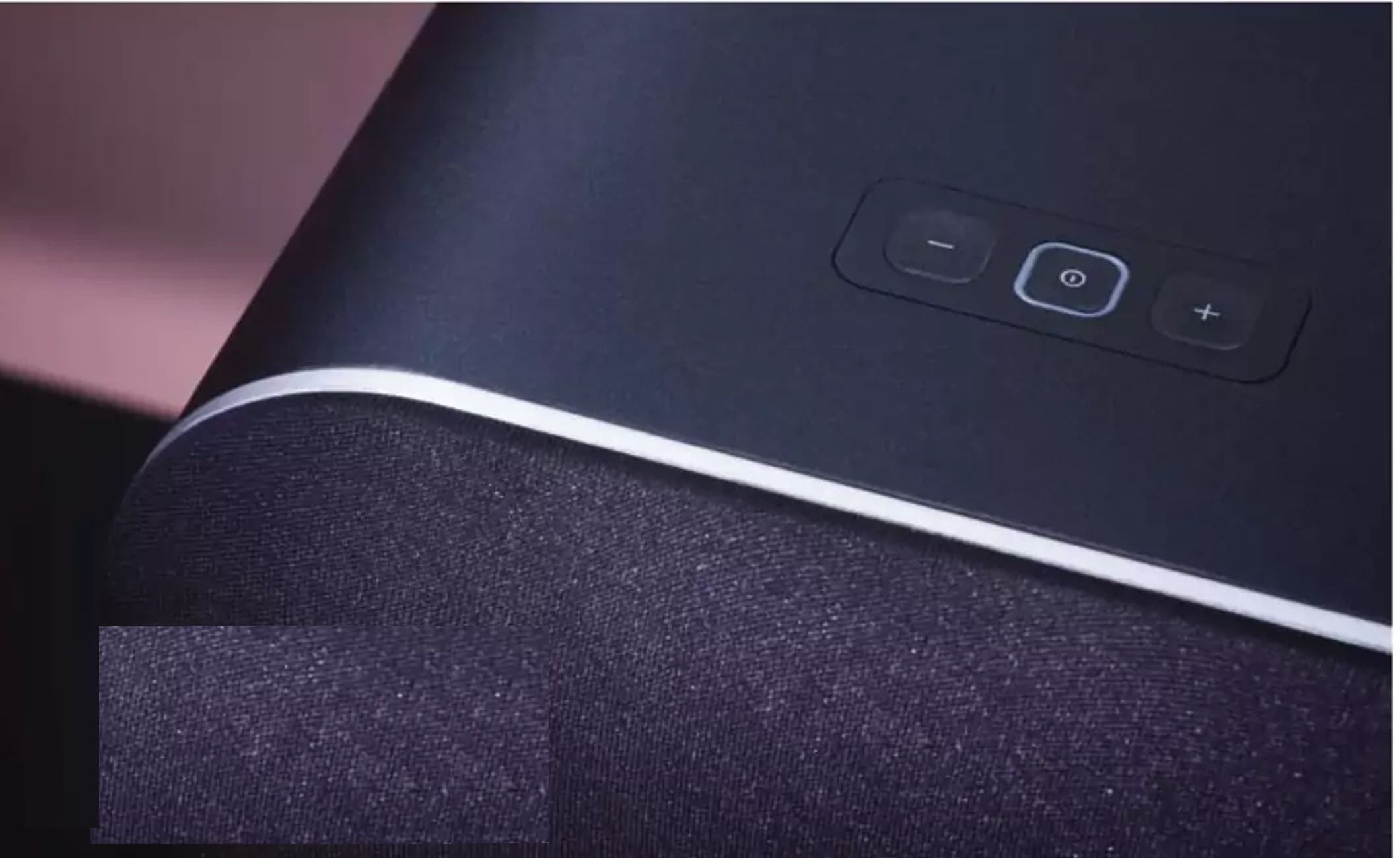
HEADWORK: The top panel lets you adjust the key functions.

PRACTICAL ACCESSORIES: Q Acoustics includes a simple, compact remote. This makes it ideal for a relaxed movie night as well.
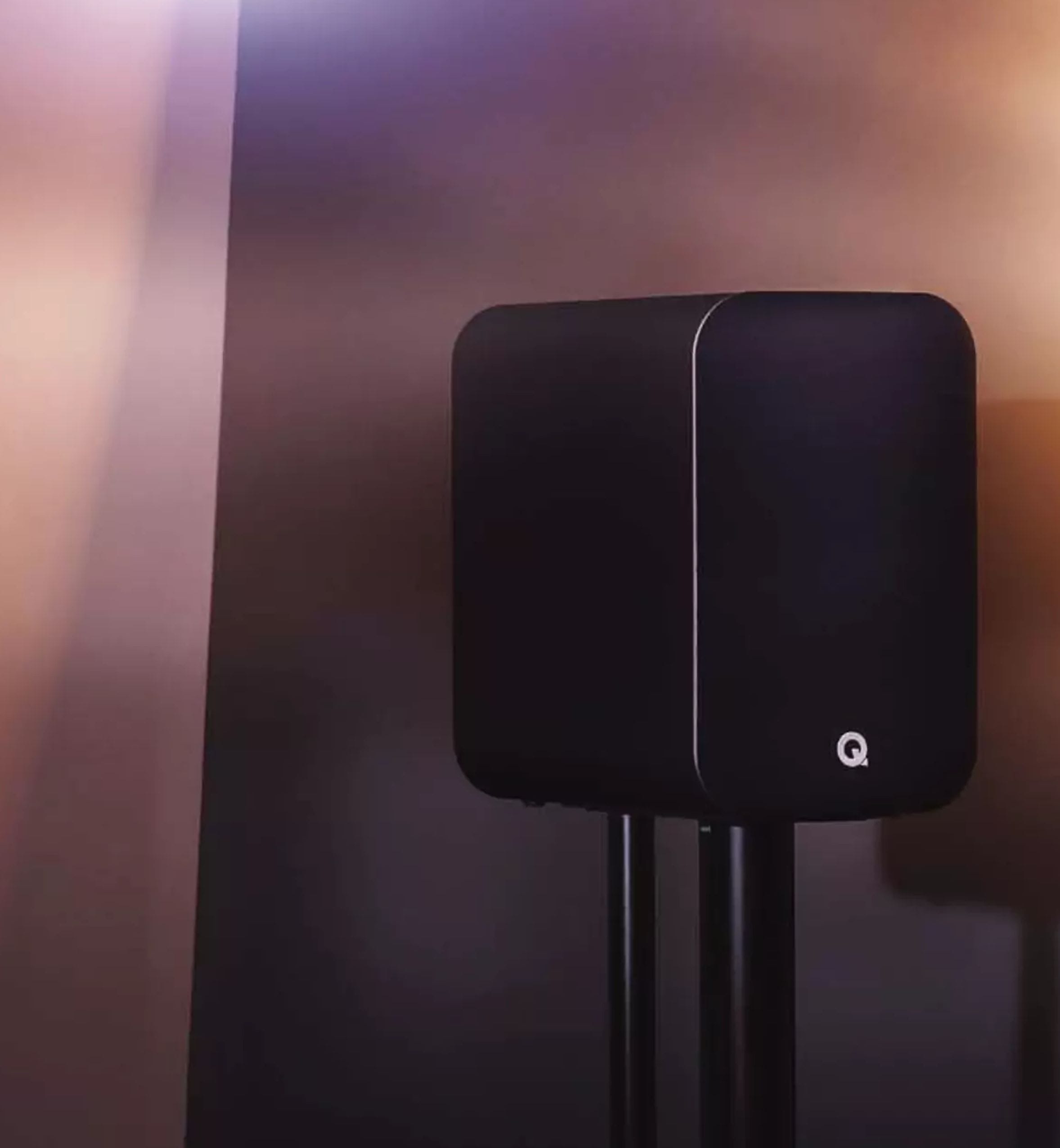
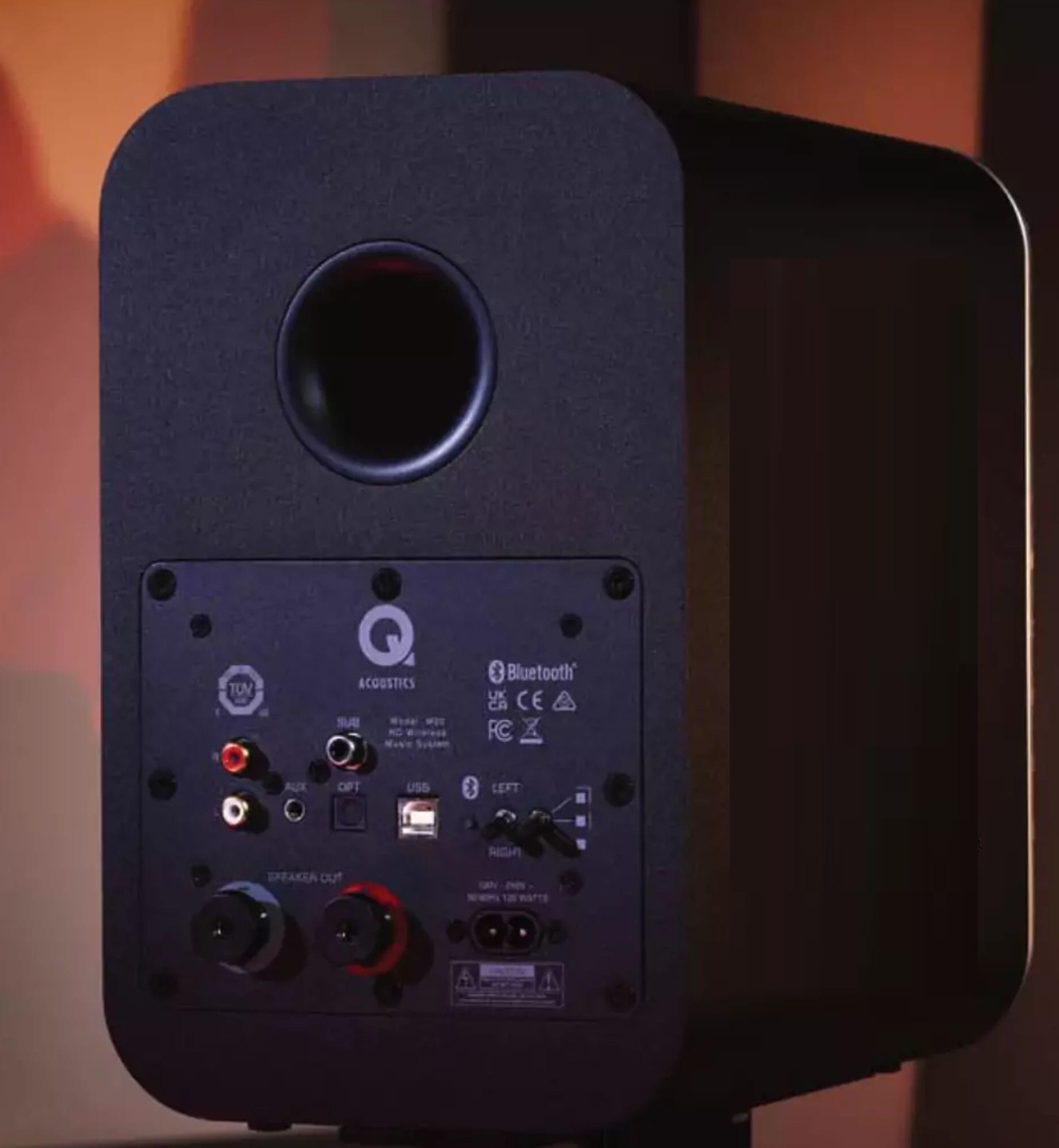
POWER AT THE BACK: The input terminals are located beneath the bass reflex port. Use the speaker outputs here to power the passive speaker.
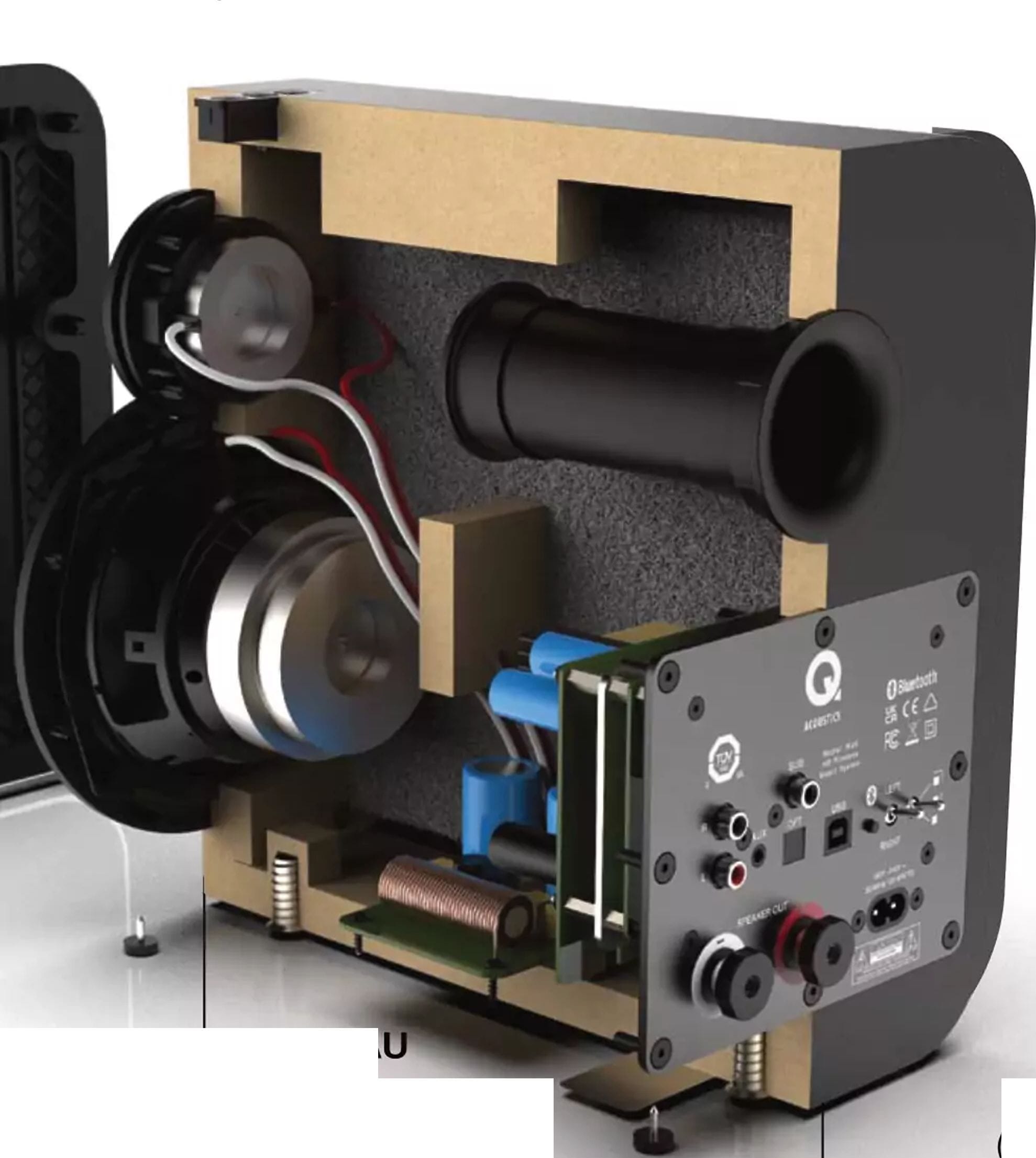
SMART AND STRONG: The cabinet has multiple internal braces, and the digital amplifier sits just behind the connections panel.
The bass reflex port fires out the back, and the sturdy screw terminals for the speaker cables look and feel high-quality. We’re once again impressed by this system’s potential. It easily beats many soundbars under a TV. In a student dorm, pair it with a capable music streamer, and you’ll be set. Apple’s HomePods don’t even come close to this refined performance.
Still not convinced? The M20 also supports Bluetooth (aptX HD), making it easy to stream from Spotify, your personal playlists, or Qobuz—earning our admiration and a metaphorical gold medal.
MEASUREMENT LAB
This compact, 14-liter, bass reflex active speaker has a smooth frequency response that gently tapers off in the highs (about 2 dB between 120 Hz and 20 kHz). Its dispersion is wide, with minor ripples at certain angles. It has a relatively high low-end cutoff of 62 or 54 Hz (-3/-6 dB). Beyond 22 kHz, the frequency response drops sharply, probably due to input filtering (tested here with an analog input). There are slight resonance trails in the waterfall plot (not shown). On the right side of the data, you can see that distortion starts somewhat early but remains even as frequencies go lower.
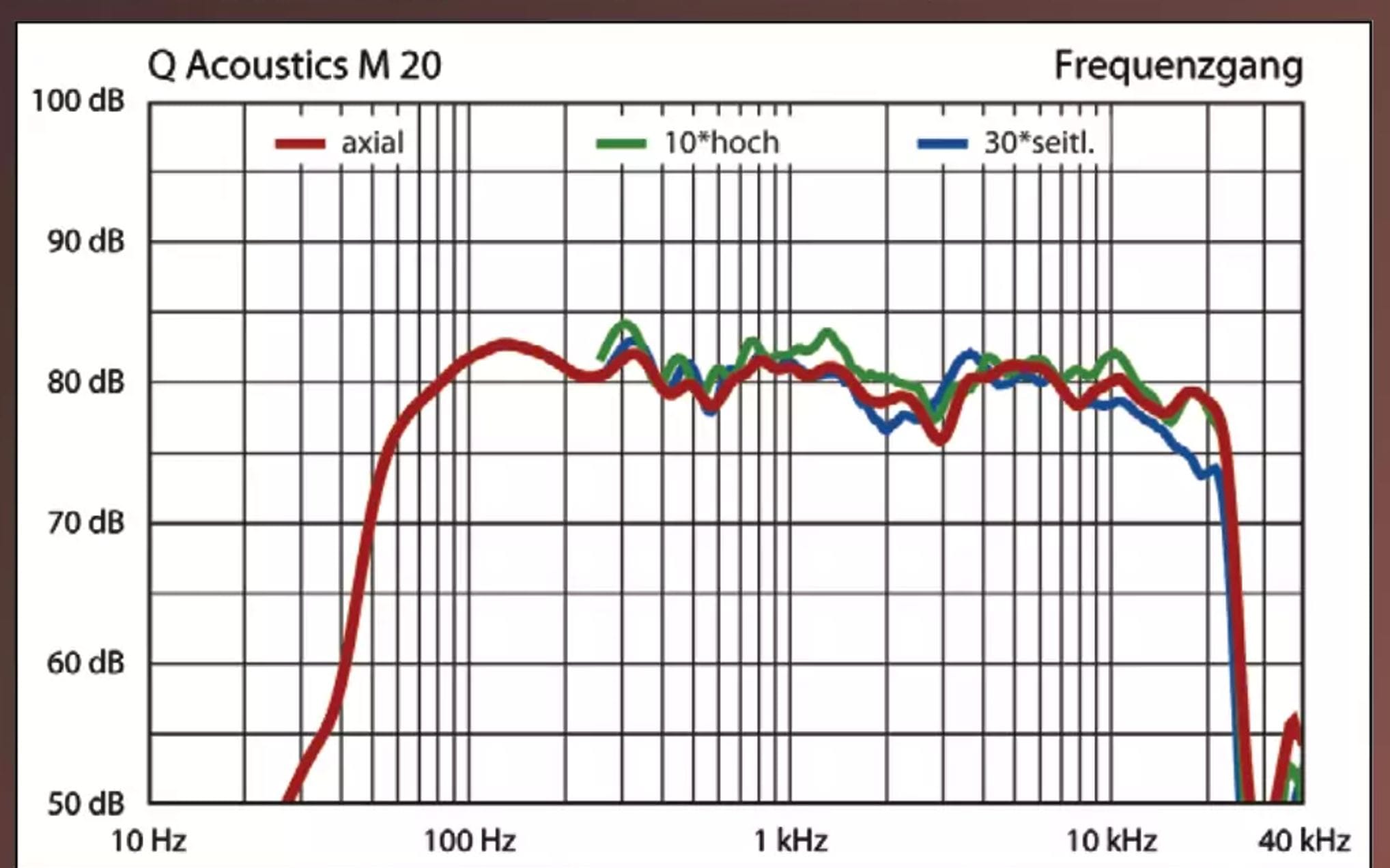
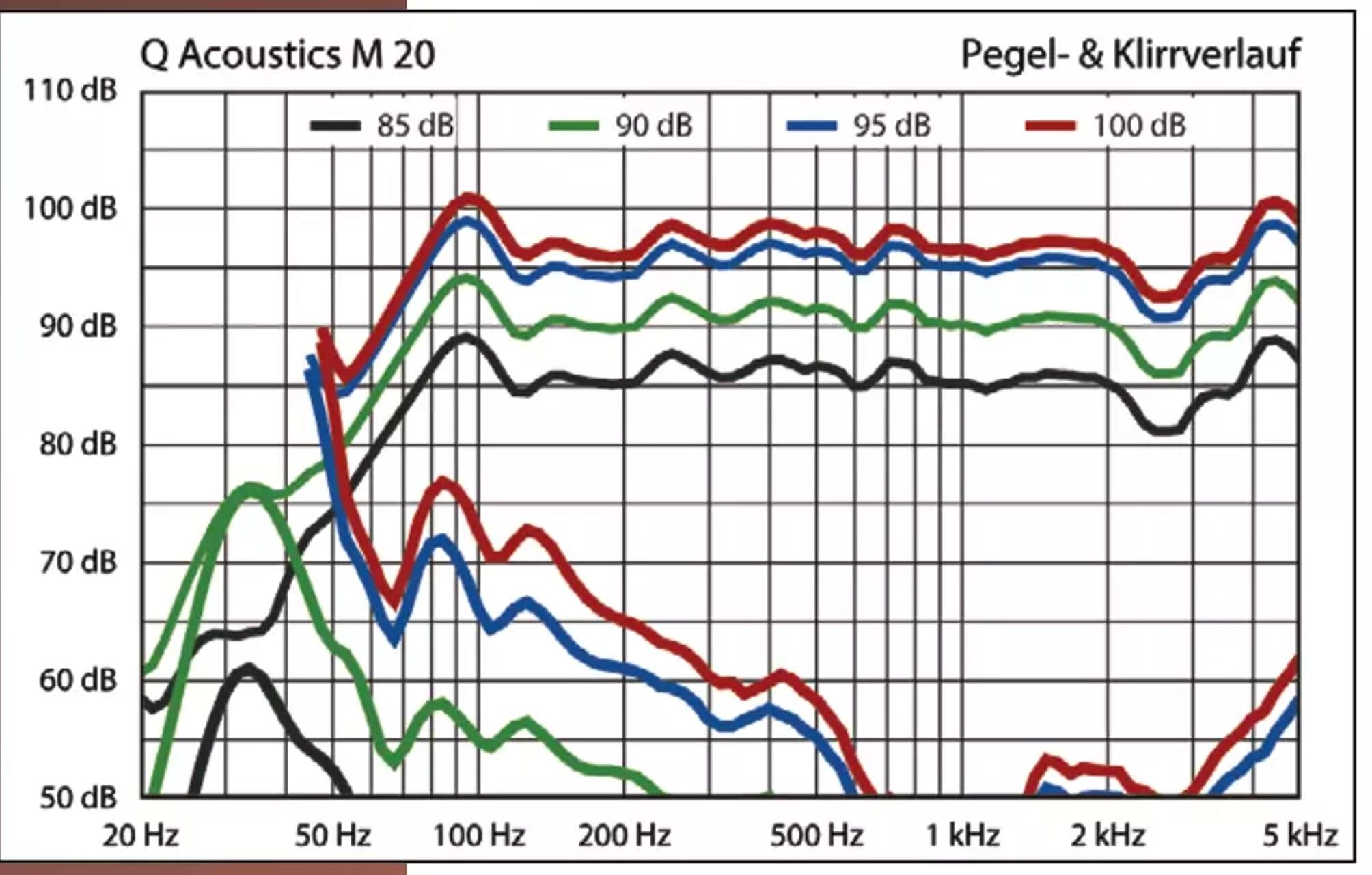
A built-in limiter keeps distortion under control, even above 97 dBSPL—evident from the nearly identical curves at 95 and 100 dB. Its efficient amplifier only draws 0.5 W in standby and about 4 W at low volumes. You also get wide-ranging support for digital audio and Bluetooth, including 24-bit/192 kHz over USB/optical, plus SBC, AAC, and aptX (HD, Low Latency).
Specs
| Product | Q Acoustics M20 |
| List Price | 500 Euro |
| Warranty | 2 Years |
| Dimensions (W x H x D) | 17 x 27.9 x 29.6 cm |
| Weight | 5.5 kg |
| Finishes | – / – / – |
| Colors | Black, White, Walnut |
| Design | Two-way, Bass Reflex, Active |
| Room Adjustment | Via toggle switch |
| Special Features | Bluetooth aptX HD |
CONCLUSION
These speakers are beautifully made and competitively priced. In a stereo pair, they can easily fill a medium-sized room. Their sound is slightly warm, with a typically British focus on the midrange. Even well-known competitors can pale in comparison. This comes as a heartfelt recommendation.
+ Very linear, possibly with a slight midrange boost
– (No major negatives mentioned)
| Neutrality | 85 → 8.5/10 |
| Detail Accuracy | 85 → 8.5/10 |
| Spatial Localization | 80 → 8.0/10 |
| Spatial Imaging | 80 → 8.0/10 |
| Microdynamics | 80 → 8.0/10 |
| Max SPL | 75 → 7.5/10 |
| Bass Quality | 70 → 7.0/10 |
| Bass Depth | 65 → 6.5/10 |
| Build Quality | Very good |
Audio Sound Rating: 79 points → 7.9/10
Price/Performance: Outstanding
When you purchase through links on our site, I may earn an affiliate commission. Here’s how it works.
Powered Magic! New Q Acoustics M20 Speaker Review
This new speaker from Q Acoustics is something special. Find out why I think everyone should listen to it, regardless of the cost of ...








